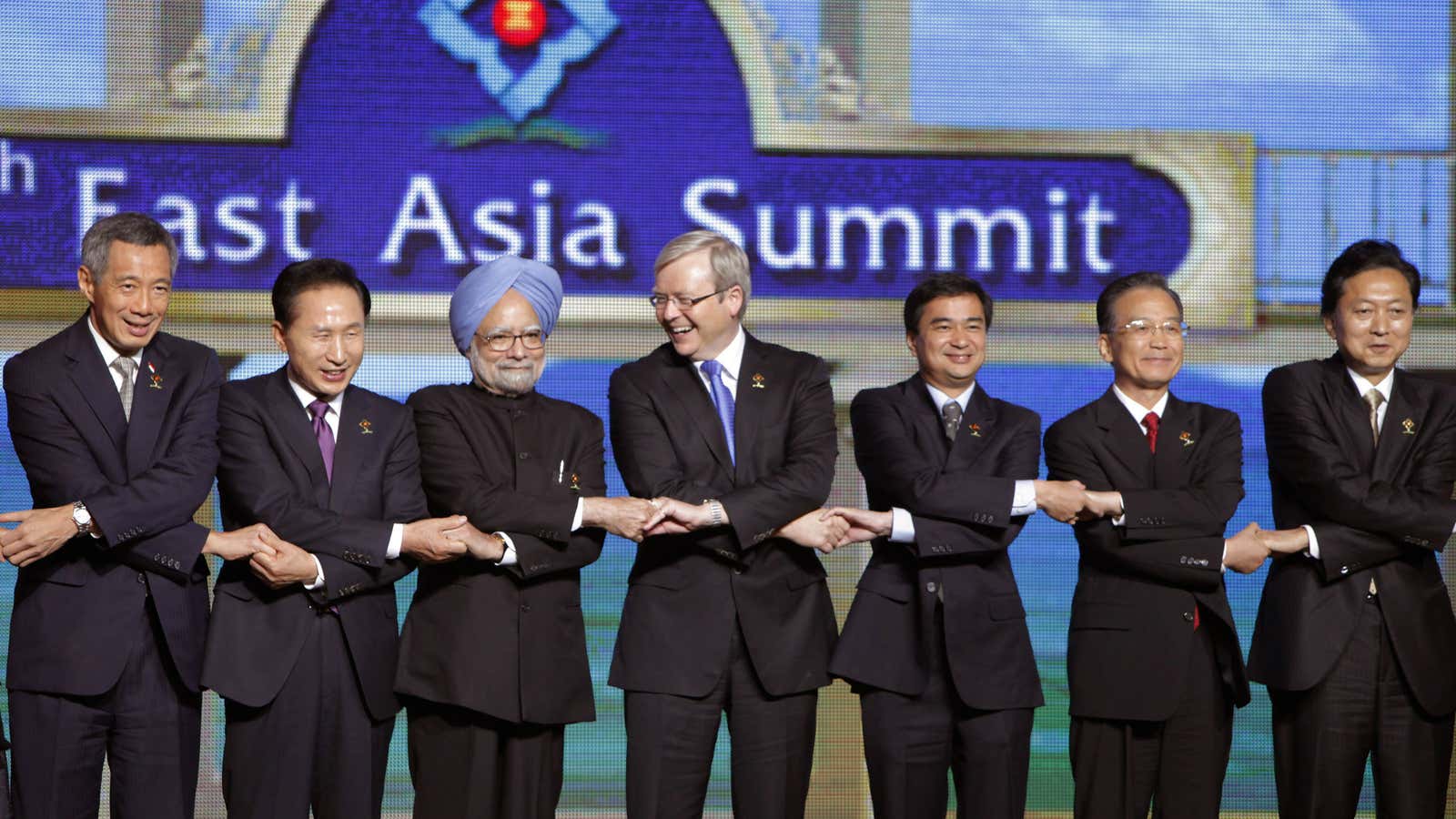US President Barack Obama just cancelled trips to Brunei and the Indonesian island of Bali to attend two pan-Asian summit meetings this weekend because of the US government shutdown, raising questions about America’s future influence in the region. Secretary of State John Kerry will lead the US delegation instead, and Obama will return at a later date, the National Security Council said on Twitter:
Because of the domestic uncertainty on display in Washington this week, Asian nations will have to “recalibrate” their relationship with each other and the United States, Lin Chong-pin, strategic studies professor at Tamkang University in Taiwan told the Christian Science Monitor. “They’ll do it gradually and in a new direction.”
That threatens to diminish the US’s clout in Asia, says Robert G. Sutter, an international affairs professor at George Washington University.
“The cancellation will strengthen widespread concerns in the Asia-Pacific region that Obama’s rebalancing [toward more active engagement in Asia]… may be unsustainable, given US domestic and other international preoccupations,” Sutter tells Quartz. “Such concerns will reduce the importance Asia-Pacific governments give to the United States as they deal with a growing reality of China’s rising power.”
Obama was scheduled to attend an Asia Pacific Economic Cooperation summit in Bali and an Association of South East Asian Nations meeting in Brunei. Other stops in the Philippines and Malaysia were cancelled earlier this week. The cancellations come just as Chinese leader Xi Jinping is touring Indonesia and the US is trying to negotiate the vital Trans-Pacific Partnership, a free trade pact that would link the US to most of Asia, with the notable exception of China.
Indonesia and China signed “cooperation agreements” worth over $30 billion this week during Xi’s visit and pledged to “open a deeper relationship.”
Xi has been trying a new strategy in the region, analysts said. Instead of military threats, Xi is employing “mild posture and language” to woo Southeast Asian nations, Shi Yinhong, an international relations expert at People’s University of China in Beijing, told USA Today.
That mild stance may not last long. Obama’s cancelled trip means that “China will likely read weakness in the United States’ support for ASEAN,” analysts from the Center for Strategic and International Studies wrote. “This could reinforce China’s preference for a more aggressive posture on sovereignty disputes whereby Beijing uses its economic heft and growing military capabilities to pressure smaller neighbors to resolve disputes bilaterally and in China’s favor.”
The US’s “pivot to Asia” was first-broadcast by then-Secretary of State Hillary Clinton in 2011, when she declared it to be “America’s Pacific century” and promised that the US would be “right at the center of the action” in Asia:
Harnessing Asia’s growth and dynamism is central to American economic and strategic interests and a key priority for President Obama….Our economic recovery at home will depend on exports and the ability of American firms to tap into the vast and growing consumer base of Asia. Strategically, maintaining peace and security across the Asia-Pacific is increasingly crucial to global progress.
Full pursuit of that global progress, it seems, will have to wait until the US government gets back to work.
Additional reporting by Gwynn Guilford.
[UPDATE: This post has been updated with an additional quote from George Washington University’s Robert G. Sutter.]
